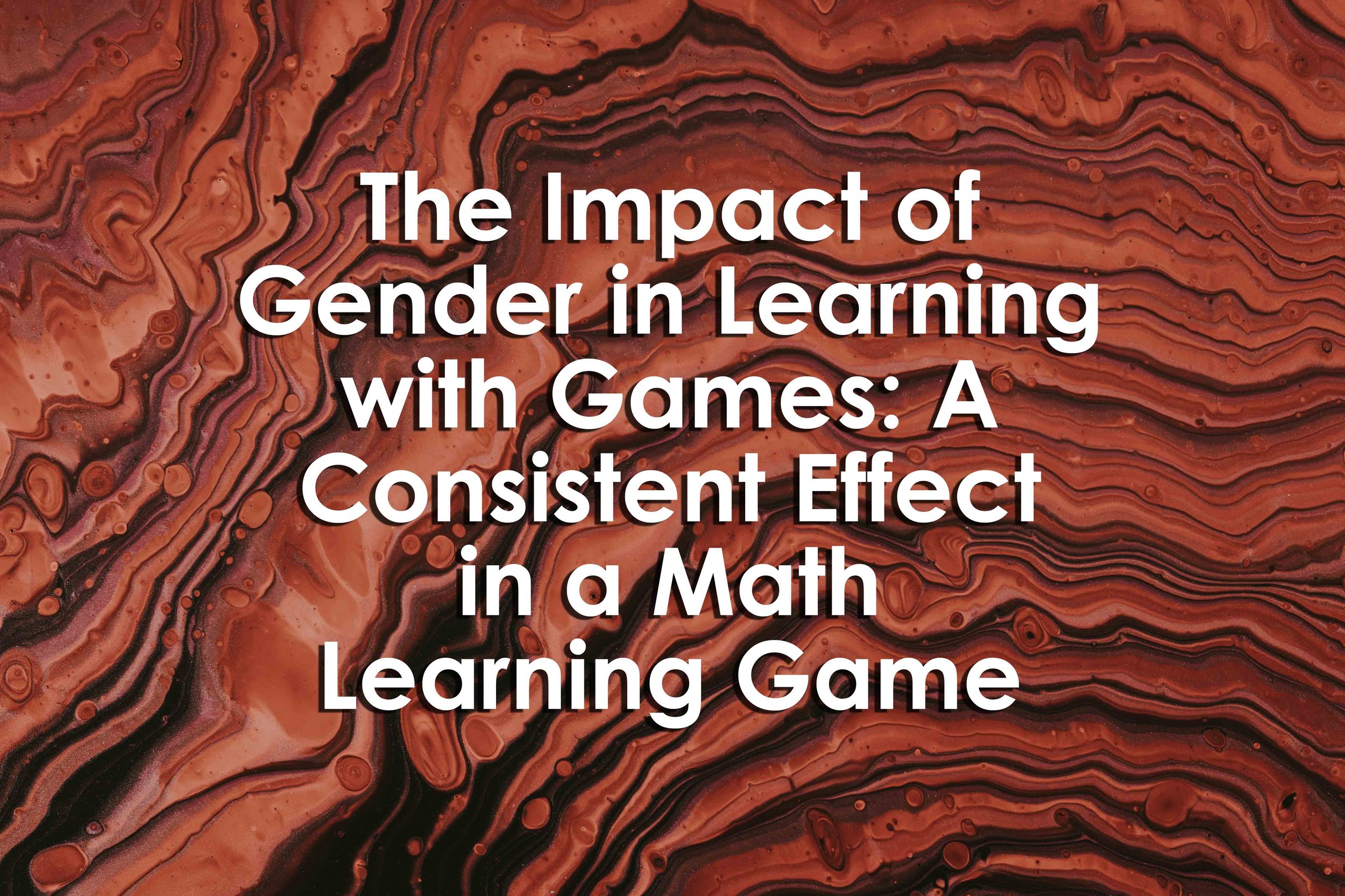The Impact of Gender in Learning with Games: A Consistent Effect in a Math
The Impact of Gender in Learning with Games: A Consistent Effect in a Math
The Impact of Gender in Learning with Games: A Consistent Effect in a Math
Learning Game
By Huy A. Nguyen, Xinying Hou, J. Elizabeth Richey, and Bruce M. McLaren
Abstract
“There is an established gender gap in middle school math education, where female students report higheranxiety and lower engagement, which negatively impacts their performance and even long-term careerchoices. This work investigates the role of digital learning games in addressing this issue by studying
Decimal Point, a math game that teaches decimal numbers and operations to 5th and 6th graders. Throughdata from four published studies of Decimal Point, spanning a period of 5 years, and involving 624students in total, the authors identified a consistent gender difference that was replicated across all
studies: male students tended to do better at pretest, while female students tended to learn more from thegame. In addition, female students were more careful in answering self-explanation questions, whichsignificantly mediated the relationship between gender and learning gains in two out of four studies.
These findings show that learning games can be an effective tool for bridging the gender gap in middleschool math education, which in turn contribute to the development of more personalized and inclusivelearning platforms.”
Reference
Nguyen, H. A., Hou, X., Riley, J. E., &; McLaren, B. M. (2022). The Impact of Gender in Learning with Games: A Consistent Effect in a Math Learning Game . Retrieved August 31, 2022, from https://www.cs.cmu.edu/afs/cs.cmu.edu/Web/People/bmclaren/pubs/NguyenEtAl-GenderEffectsInDecimalPoint-IJGBL2022.pdf
Keyword
Games, learning games, math, digital learning, education, teaching, research

